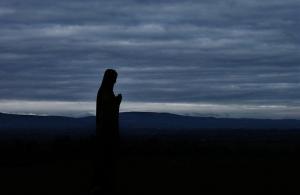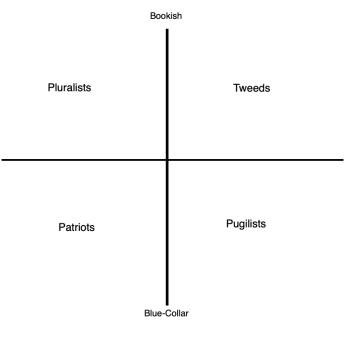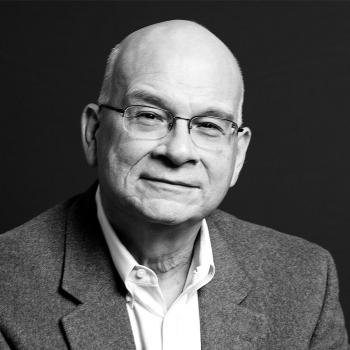 A short while ago, I put out a review of Sohrab Ahmari’s fine new book The Unbroken Thread: Discovering the Wisdom of Tradition in an Age of Chaos. Towards the end of that piece, I raised a slight quibble about whether it might be more argumentatively compelling to speak about tradition as something in which one participates, rather than as something to which one submits. At the same time, though, I realized—both then and now—that this might be sheer nitpicking. Perhaps the first-order question is something far more basic: for the average urban millennial in 2021, is a phrase like “the wisdom of the past” an oxymoron?
A short while ago, I put out a review of Sohrab Ahmari’s fine new book The Unbroken Thread: Discovering the Wisdom of Tradition in an Age of Chaos. Towards the end of that piece, I raised a slight quibble about whether it might be more argumentatively compelling to speak about tradition as something in which one participates, rather than as something to which one submits. At the same time, though, I realized—both then and now—that this might be sheer nitpicking. Perhaps the first-order question is something far more basic: for the average urban millennial in 2021, is a phrase like “the wisdom of the past” an oxymoron?
In between the nonfiction selections that comprise most of my reading, I periodically detour through some popular contemporary fiction—over the last several months, Lauren Oyler’s Fake Accounts, Leigh Stein’s Self Care, Sally Rooney’s Normal People, and Will Wiles’s Care of Wooden Floors were particular standouts. To be sure, these stories are exceptionally well told, coupling lacerating social commentary with crackling prose. And I have no way of knowing whether the thought-worlds they depict are fully representative of their authors’ own philosophical commitments. But if books like these are in any way representative of how many modern people actually experience their lives—and I have no reason to believe that they aren’t, given their popularity—then I have to say that the ways of living described here seem profoundly thin to me, bereft of the same “emotional palette” that characterized generations past. Altogether absent is the guilt experienced by an Emma Bovary, or the existential yearnings that characterize Dostoevsky’s tormented heroes, or even the sprawling social ruminations of a Stephen Dedalus. Instead, what takes center stage are the details of social performance—the ways in which we frame our personas on social media, drift in and out of unsatisfying romantic relationships, struggle with unsatisfying career trajectories, and chase something akin to “authenticity” no matter the cost. (Contrast this with, say, Jenny Offill’s Weather, which answers its thoroughgoing climate despair with a kind of “radical hope” couched in explicitly theological terms.)
In my everyday life and my group chats alike, I tend to be surrounded by people who take seriously the pedagogical weight of history and tradition, even if everyone certainly doesn’t agree on every point. Reading modern fiction informs me that my friends and I are probably the outliers, at least in major metropolitan areas. While the point rarely comes forward overtly, these books seem to operate with a conception of pre-1960s history as, by and large, a benighted world of superstition and oppression devoid of lasting relevance. On this view, “tradition” really is a dirty word of sorts. One might say that contemporary literary fiction regularly offers a striking glimpse into a world beyond the DIY spirituality of Tara Isabella Burton’s Strange Rites—a world in which the Big Questions simply aren’t posed at all.
I have no intention of making a fresh case for the meaningfulness of the “old ways” in an increasingly disenchanted world (Ahmari has helpfully done that already). My point here is far narrower: a thing that regularly strikes me about these books, and the thought-lives of the characters they depict, is the overwhelming power of the internet as an instrument of spiritual “redirection.” As I’ve written before, engagement with digital pluriformity has come to serve as a kind of placeholder for what was once ritual practice; the act of connecting with mysterious, not-quite-human forces and agents mediated through smartphones has come to serve as a kind of surrogate for encounters with the real. And in turn, the range of moral and intellectual concerns experienced by the average person has collapsed further and further into the singularity of the screen.
Of course, in the contemporary lit-fic that describes these dynamics, the full vocabulary to capture this phenomenon strikes me largely lacking. Perhaps, if today’s writers are to more effectively explain what is actually happening in our encounters within digital spaces—such as why, when placed in the right context, a phrase like disordered desire feels so profoundly apt, maybe as an explanation of our longing for Photoshop-enhanced perfection—it’s high time to break out the hoary old language of the past, handed down through a tradition that transcends any of us as individuals. Can anything else do justice to the full complexity of what we experience on a daily basis?












